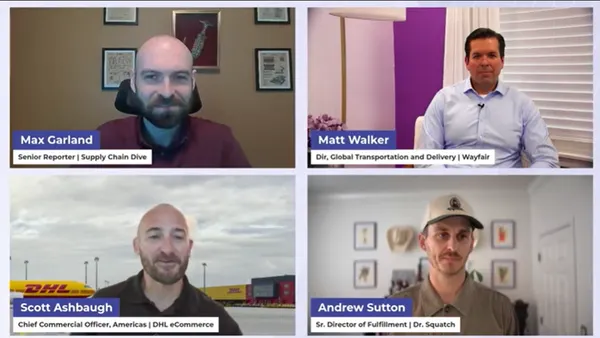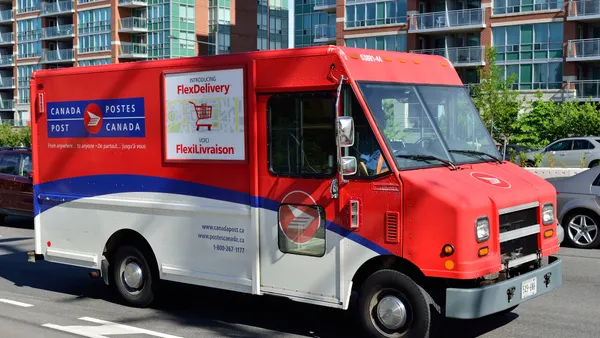Dive Brief:
- FedEx's third-quarter results showed revenues missing expectations despite growing package volume for FedEx Ground. Revenue for the last quarter was up 3% year-over-year but missed targets by nearly $700 million.
- A larger-than-expected share of light, low-rate e-commerce packages, along with the shorter distances packages are traveling as retailers optimize their fulfillment networks for the shortest ship time, brought the average rate charged for a parcel down 2% for the third quarter.
- "U.S. volume growth continued to benefit from the expansion of our e-commerce solutions but yields were pressured by this expansion, lower weight per shipment and service mix changes," said CFO Alan Graf.
Dive Insight:
"We had a bad quarter. No doubt about it. I'm disappointed in it. But I'm not letting one bad quarter decide how we're going to manage this business for the next five years," said COO Raj Subramaniam, as the company reduced its revenue forecast for the current fiscal year (for the second time) from $6 billion to $4.5 billion.
FedEx said the volume of small parcels traveling short distances is a new phenomenon for the carrier. The fairly obvious task ahead is to make the most of the volume FedEx has and build the business in more profitable areas. Graf said cost structure for short-haul deliveries may need adjustment too.
FedEx Extra Hours service, which makes later pickups available, is one effort to win over more lucrative business. AutoZone, Best Buy and Rent the Runway have already signed on.
The carrier is also looking to grab more large packages, which come with an extra service fee.
Beyond new services, and the ongoing work of reducing headcount with automation and voluntary buyouts, the carrier is in the process of tweaking its facility network and upgrading technology to handle more volume while keeping costs in check.
"What's going on at Ground is nothing short of transformational," Subramaniam said. "Ground is going to be in a position to significantly drive down its costs of serving the residential market and significantly increase its capacity with not much incremental capital expenditure particularly in terms of hubs."
The explanations of volume mix, the global economy and trade uncertainty made analysts on the call wonder why FedEx continues an ambitious investment strategy when margins continue to decline.
"It's the nature of the business," said CEO Fred Smith. "We are in the midst of spending a significant amount of capital to replace our very old airplanes and to expand the Memphis [and] the Indianapolis hubs."













